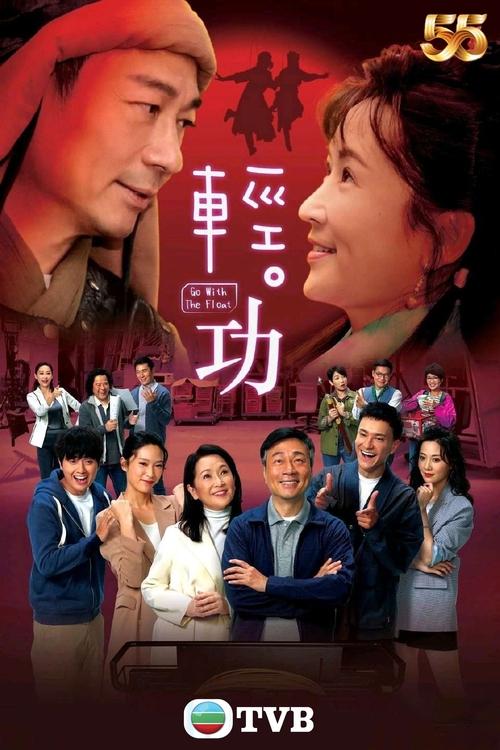
Ask Your Own Question
What is the plot?
In Episode 28 of "The Stories of Lion Rock Spirit," the episode opens with a tense atmosphere in the community as the residents are grappling with the aftermath of recent events. The camera pans over the streets of the neighborhood, showing the worried faces of the locals who are discussing the challenges they face. The main character, a community leader named Ah Choi, is seen pacing in his office, contemplating the best way to unite the residents and address their concerns.
As the scene shifts, we see Ah Choi gather a group of key community members in a local hall. The group includes a mix of older residents and younger activists, each bringing their own perspectives on the issues at hand. Ah Choi emphasizes the importance of solidarity and encourages everyone to share their thoughts. Tensions rise as differing opinions emerge, particularly from a young activist named Mei, who feels that the older generation is out of touch with the current struggles. This disagreement sets the stage for a deeper conflict within the community.
The narrative then transitions to a flashback sequence that reveals Ah Choi's past experiences with community organizing. We see him as a younger man, passionately rallying people together during a previous crisis. This backstory provides insight into his motivations and the weight of responsibility he feels in the present situation. The flashback ends with Ah Choi making a vow to protect his community, which fuels his determination in the current crisis.
Returning to the present, the group decides to hold a community meeting to address the issues directly. Ah Choi takes the lead in organizing the event, and the scene shows him reaching out to various residents, encouraging them to attend. The preparations are filled with a sense of urgency, as the community is on the brink of division. Ah Choi's internal struggle is palpable; he fears that if they cannot come together, the community will suffer irreparable damage.
On the day of the community meeting, the hall is filled with residents, and the atmosphere is charged with anticipation. Ah Choi opens the meeting, but the initial discussions quickly devolve into arguments. Mei stands up to voice her frustrations, calling for more radical action, while others advocate for a more cautious approach. The conflict escalates, and Ah Choi struggles to maintain order, feeling the weight of his leadership as he tries to mediate the situation.
As the arguments continue, a sudden interruption occurs when a group of outsiders enters the hall, claiming to represent a development company interested in the area. Their presence adds a new layer of tension, as they propose plans that threaten the community's way of life. The residents are divided; some are tempted by the promises of economic growth, while others, led by Ah Choi and Mei, vehemently oppose the idea. This confrontation forces the community to confront their values and priorities.
In a pivotal moment, Ah Choi stands up and passionately defends the community's right to preserve their home. He shares personal stories of the struggles they have faced together, invoking a sense of shared history and purpose. His speech resonates with many, reigniting their sense of unity. The outsiders, sensing the shift in sentiment, attempt to undermine Ah Choi's message, but he remains steadfast, rallying the residents to stand together against the threat.
The episode culminates in a dramatic vote among the residents, where they must decide whether to accept the outsiders' proposal or reject it in favor of preserving their community. The tension is palpable as each resident casts their vote, and the results are announced. The majority chooses to reject the proposal, a decision that brings a wave of relief and renewed hope to the community.
In the closing scenes, Ah Choi reflects on the outcome, feeling a mix of pride and concern for the future. He acknowledges the challenges that lie ahead but is determined to continue fighting for the community. The episode ends with a sense of solidarity among the residents, as they come together to celebrate their victory, united in their commitment to protect their home.
What is the ending?
Is there a post-credit scene?
How does the relationship between the main character and their mentor evolve in this episode?
Throughout Episode 28, the relationship between the main character and their mentor deepens as they confront the impending threat to their community. The mentor provides guidance and wisdom, encouraging the main character to harness their inner strength. This dynamic showcases a blend of respect and emotional vulnerability, as the main character seeks validation and support.
What challenges does the main character face in Episode 28?
In Episode 28, the main character, who is deeply committed to their community, faces significant challenges as they navigate a conflict between local residents and a powerful developer threatening to demolish their neighborhood. The emotional weight of this struggle is palpable, as the character grapples with feelings of helplessness and determination to protect their home.
How does the episode depict the theme of resilience through its characters?
Episode 28 vividly depicts resilience through its characters, particularly in scenes where they confront setbacks and continue to push forward. The main character's determination to organize a protest against the developer showcases their unwavering spirit, while other characters share personal stories of overcoming adversity, reinforcing the theme of resilience in the face of challenges.
What internal conflicts does the main character experience in this episode?
The main character experiences intense internal conflict in Episode 28, torn between the desire to fight for their community and the fear of failure. As they witness the struggles of their neighbors, feelings of doubt and anxiety surface, leading to moments of introspection where they question their ability to lead and inspire others.
What role does the community play in the events of Episode 28?
In Episode 28, the community plays a crucial role as they rally together to oppose the developer's plans. The scenes are filled with emotional gatherings, where residents share their stories and fears, creating a powerful sense of unity. This collective action highlights the importance of community bonds and the shared history that fuels their resistance.
Is this family friendly?
"The Stories of Lion Rock Spirit" is generally considered family-friendly, focusing on themes of community, resilience, and moral values. However, in Episode 28, there are a few scenes that might be considered potentially objectionable or upsetting for children or sensitive viewers.
-
Conflict and Tension: The episode features moments of conflict between characters that may evoke feelings of anxiety or distress. These scenes highlight misunderstandings and emotional confrontations.
-
Emotional Struggles: Characters experience personal challenges and emotional turmoil, which may resonate deeply with viewers. The portrayal of sadness or frustration could be intense for younger audiences.
-
Social Issues: The episode touches on social themes that may be complex or difficult for children to fully understand, such as community struggles or interpersonal relationships.
-
Mild Violence: There may be instances of mild confrontations or physical altercations that, while not graphic, could be unsettling for some viewers.
Overall, while the show aims to convey positive messages, these elements could be sensitive for certain audiences.























































